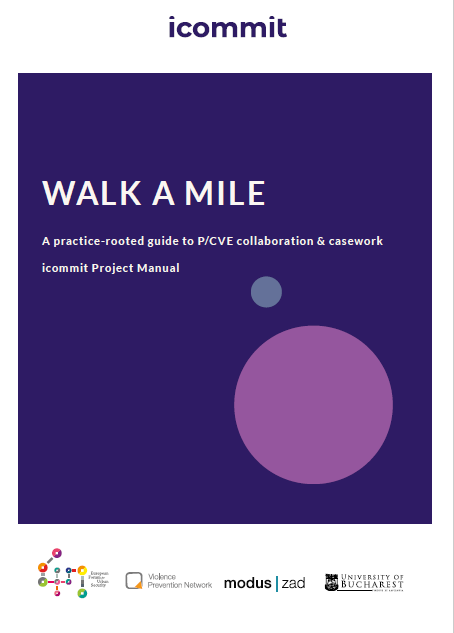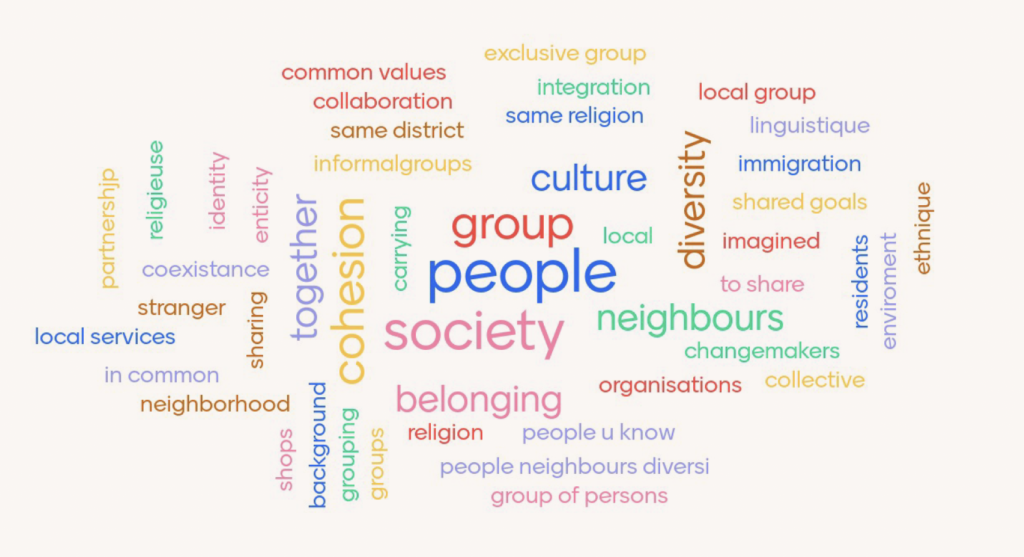
icommit -Improved Commitment of Multi-stakeholder Collaboration Through Model and Interactive Training Development
Context
Policy documents and strategies of the past years have underlined the importance of multi-agency approaches for preventing and countering violent extremism at the local level. Such approaches are based on the idea that we need a variety of perspectives and professions to tackle the complex and quickly changing landscape of (violent) extremism. Many gaps remain in the support and training available to build such local structures and foster the necessary cooperation.
The project
To arrive at more informed decisions on how to jointly respond to the quickly changing landscape of violent extremism, icommit developed tools and training courses to improve collaboration between stakeholders involved in disengagement and reintegration (D&R) and has strengthened their preparedness in the prevention and countering of (violent) extremism, whether right-wing or Islamist.
The project effectively improved cooperation between security and non-security stakeholders and state and non-state actors across Europe, fostering holistic case management for sustainable disengagement and reintegration.
Objectives
The project’s main objectives were to improve collaboration between different stakeholders involved in disengagement and reintegration (D&R) and to strengthen their preparedness in prevention and countering of (violent) extremism (P/CVE), whether right-wing (VRWE) or Islamist (VIE).
Approach
Based on theoretical, empirical and practical knowledge and methods, which complement experience from previous EU-projects, icommit’s methodology aimed to:
- Enable multi-stakeholder collaboration teams to define their long-term action plans and reach their own goals through training and mentoring.
- Support practitioners in their intervention planning and communication of case progress.
- Improve cooperation between security and policy stakeholders, social workers and civil society to foster holistic case management for sustainable CVE work.
- Create a network of experts in this field to support cities in reaching their goals.
Main activities
- > Development of a toolkit for social diagnostics and needs analysis for multi-stakeholder collaboration.
- > Implementation of a toolkit certification course for non-security actors.
- > Implementation of a training course for multi-stakeholder collaboration teams across Europe, composed of security and non-security actors, and state and non-state actors.
- > Development of guideline models, factsheets, training curricula and manuals on multi-stakeholder collaboration in disengagement and reintegration.
Consortium
The icommit project consortium is led by the Violence Prevention Network (Germany), and includes the European Forum for Urban Security (Efus), the University of Bucharest (Romania), and modus | zad (Germany).

The role of Efus
- Efus contributed with its long-standing expertise in supporting local and regional authorities in implementing the strategic approach to urban security and crime prevention, and has ensured the inclusion of such an approach throughout the project.
Final publication

“Walk a Mile” is a comprehensive guide to preventing and countering violent extremism (P/CVE) through collaboration and casework. The manual is designed to strengthen multi-stakeholder collaboration and support caseworkers in P/CVE-related processes.
Click here to read the full publication.

Visit the project’s website
Duration
January 2022 – September 2023
( 18 months )
Contacts
Violence Prevention Network: Sophie Scheuble, Programme Manager – sophie.scheuble@violence-prevention-network.de
Efus : Asma Kaouech, Programme Manager – kaouech@urbansecurity.org
Anne Boisseau, Programme Manager – boisseau@urbansecurity.org

Article

